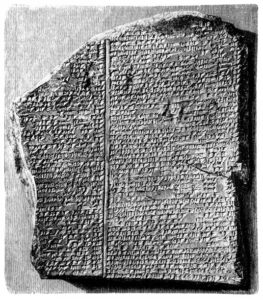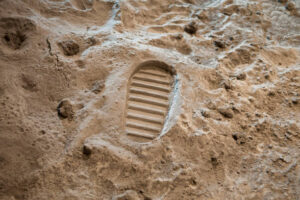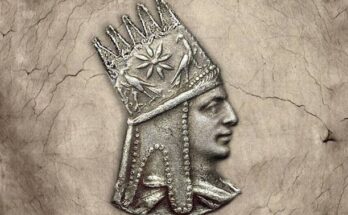Throughout the annals of history, human curiosity and perseverance have led to remarkable discoveries that have revolutionized our understanding of the world. From ancient artifacts to ground-breaking scientific revelations, these historic findings have left an indelible mark on the course of civilization. In this exploration, we delve into the top 10 historic discoveries that have played a pivotal role in shaping the world we inhabit today.
1. The Rosetta Stone: Decoding Ancient Civilizations
 (Photo from iStock)
(Photo from iStock)
In 1799, during the Napoleonic campaign in Egypt, soldiers unearthed a slab of black basalt inscribed with three versions of a decree written in Greek, Demotic, and hieroglyphics. This discovery, known as the Rosetta Stone, provided the key to unlocking the mysteries of ancient Egyptian hieroglyphs. The decipherment of the stone by Jean-François Champollion in 1822 opened a window into the rich history and culture of ancient Egypt, allowing scholars to understand the language and religious texts of this enigmatic civilization.
2. The Dead Sea Scrolls: Ancient Manuscripts Preserved in Time
In 1947, a Bedouin shepherd stumbled upon a collection of ancient manuscripts hidden in caves near the Dead Sea. The Dead Sea Scrolls, dating back to the 2nd century BCE, comprise texts from the Hebrew Bible and other religious writings. These remarkably well-preserved scrolls provide insights into the beliefs, practices, and daily life of the Jewish communities of the Second Temple period. Eventually, the discovery has had profound implications for biblical scholarship and our understanding of the origins of Judaism and Christianity.
3. The Terracotta Army: Guardians of an Emperor’s Legacy
In 1974, farmers digging a well near Xi’an, China, unearthed one of the most astonishing archaeological finds of the 20th century – the Terracotta Army. Thousands of life-sized clay soldiers, horses, and chariots were crafted to accompany China’s first emperor, Qin Shi Huang, into the afterlife. The discovery not only showcased the artistic and technological prowess of the Qin Dynasty but also shed light on the scale and grandeur of ancient Chinese burial practices.
4. Penicillin: The Birth of Antibiotics
 (Photo from iStock)
(Photo from iStock)
In 1928, Scottish biologist Alexander Fleming made a serendipitous discovery that revolutionized medicine. While studying bacteria, he noticed that a mould called Penicillium notatum inhibited bacterial growth in its vicinity. This chance observation led to the development of the first antibiotic, penicillin. Moreover, the widespread use of antibiotics has since transformed the field of medicine, saving countless lives by combating bacterial infections. Fleming’s accidental discovery laid the foundation for the antibiotic era and marked a crucial milestone in the history of medical science.
5. The Higgs Boson: Unravelling the Mysteries of Particle Physics
In 2012, scientists at CERN (European Organization for Nuclear Research) announced the discovery of the Higgs boson, a subatomic particle that had eluded detection for decades. The Higgs boson is crucial to the Standard Model of particle physics, explaining how particles acquire mass. Moreover, the discovery confirmed the existence of a fundamental mechanism that governs the behaviour of matter in the universe. Altogether, the Higgs boson’s identification was a triumph for the scientific community, providing a deeper understanding of the fundamental building blocks of the cosmos.
6. The Antikythera Mechanism: Ancient Greek Computer
In 1901, off the coast of the Greek island of Antikythera, divers discovered a corroded bronze mechanism that turned out to be an ancient analogue computer. Dating back to the 2nd century BCE, the Antikythera Mechanism is an intricate device with gears and dials, used to predict celestial events such as eclipses and the positions of the planets. Furthermore, This extraordinary discovery challenged previous assumptions about ancient Greek technological capabilities and demonstrated a sophisticated understanding of astronomy and mechanics in antiquity.
7. DNA Structure: The Double Helix Revelation
 (Photo from iStock)
(Photo from iStock)
In 1953, James Watson and Francis Crick, with crucial input from Rosalind Franklin’s X-ray diffraction images, unravelled the structure of DNA. Their ground breaking discovery of the double helix model illuminated the mechanism of genetic inheritance. This revelation paved the way for advancements in molecular biology, genetics. Further, biotechnology, ultimately leading to ground-breaking developments such as the Human Genome Project. Understanding the structure of DNA has had profound implications for fields ranging from medicine to forensics, shaping the landscape of biological sciences.
8. Machu Picchu: Lost City of the Incas
In 1911, American historian and explorer Hiram Bingham. Rediscovered the ancient Inca city of Machu Picchu high in the Andes Mountains of Peru. The site, with its breath-taking architecture and stunning mountainous backdrop. Had been abandoned for centuries and was virtually unknown to the outside world. Moreover, Machu Picchu’s discovery provided valuable insights into Inca civilization, showcasing advanced engineering and architectural achievements. Today, it stands as a UNESCO World Heritage site and one of the New Seven Wonders of the World.
9. The Printing Press: A Revolution in Communication
Johannes Gutenberg’s invention of the printing press around 1440 revolutionized the way information was disseminated. Prior to the printing press, books were laboriously copied by hand, making them scarce and expensive. The printing press enabled the mass production of books, making knowledge more accessible to a broader audience. This innovation played a pivotal role in the Renaissance, Reformation. And the spread of scientific knowledge, fostering intellectual and cultural transformations that shaped the course of history.
10. The Apollo 11 Moon Landing: Humanity Reaches for the Stars
 (Photo from iStock)
(Photo from iStock)
On July 20, 1969, the Apollo 11 mission achieved a historic milestone by landing the first humans on the moon. Astronauts Neil Armstrong and Buzz Aldrin took the first steps on the lunar surface, while Michael Collins orbited above. This monumental achievement marked the pinnacle of the Space Race between the United States and the Soviet Union. Evidently, the moon landing not only showcased human ingenuity and determination but also expanded our understanding of the cosmos. Opening the door to future space exploration.
Conclusion
The top 10 historic discoveries outlined above represent a tapestry of human achievement, curiosity, and perseverance. From unravelling the mysteries of ancient civilizations to probing the fundamental structures of the universe. Eventually, these historic discoveries have transformed our understanding of the world and propelled humanity forward.




